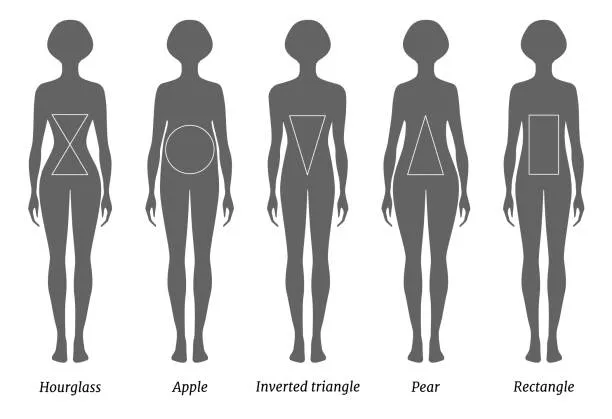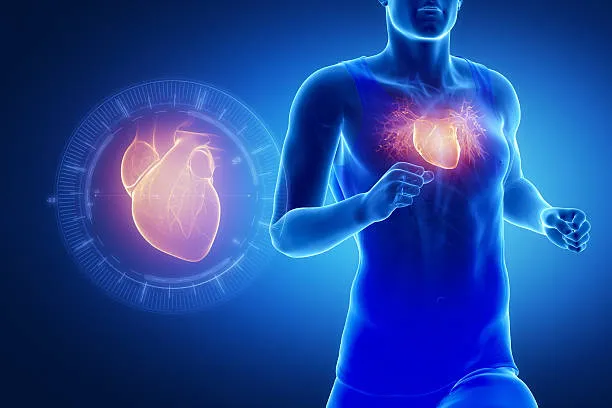Lose "Baby Weight" After Pregnancy
Do you want to shed the extra pounds gained during pregnancy and attain the bikini body you desire?
It's a known fact that reaching a healthy weight after giving birth can be challenging. Caring for a newborn, adapting to a new schedule, and recuperating from childbirth can all be stressful.
However, you can accomplish this by eliminating processed foods from your diet, consuming six small meals a day, and engaging in some physical activity!
Guide Specifically Customized To Suit Your Individual Body Type
Ectomorphs
Ectomorphs tend to have a lean and slender build with a fast metabolism, making it difficult for them to gain weight or build muscle. A diet high in protein and healthy fats, along with resistance training, can help ectomorphs build muscle and maintain a healthy weight.

Mesomorphs
Mesomorphs have a more athletic build, with a muscular and well-proportioned body. They tend to respond well to strength training and can build muscle quickly. A balanced diet with a mix of protein, carbohydrates, and healthy fats, along with regular resistance training, can help mesomorphs maintain their physique.
Endomorphs
Endomorphs tend to have a larger and rounder body type with a slower metabolism, making it easier for them to gain weight. A diet that is low in processed foods and high in protein and fiber, along with regular cardiovascular exercise and weight training, can help endomorphs lose weight and build muscle.
Simple Steps to Achieve a Healthier Lifestyle
Achieve a Healthier Lifestyle
Living a healthy lifestyle is important for both physical and mental well-being. However, with our busy schedules and hectic lifestyles, maintaining a healthy routine can be challenging.
Here are 5 simple steps that you can take to achieve a healthier lifestyle:


7 Scientific Ways To Lose Weight
Are you attempting to shed some pounds?
If yes, there are numerous actions you can take to assist yourself in achieving your weight loss objectives. Although trendy diets and rapid solutions may appear to be a simple way out, they are not always the optimal alternative.
7 Scientific Ways To Lose Weight NATURALLY
Obesity and overweight are major health problems that are affecting people all around the world. Obesity increases the risk of various health issues like type 2 diabetes, heart disease, and high blood pressure. Losing weight is essential for maintaining good health and reducing the risk of chronic diseases. In this blog post, we will discuss seven scientific ways to lose weight effectively.
1. Eat a Healthy Diet
The first step towards losing weight is to eat a healthy diet. A balanced diet that includes fruits, vegetables, whole grains, lean proteins, and healthy fats can help you lose weight effectively. Avoid processed foods, sugary drinks, and snacks as they contain empty calories that can cause weight gain.
One scientific approach to weight loss is to follow a high protein diet. A high protein diet can help you feel fuller for a longer time and reduce your overall calorie intake. Research has shown that a high protein diet can also help preserve muscle mass while losing weight.
2. Practice Mindful Eating
Mindful eating is a practice that involves paying attention to your food and eating habits. It can help you control your food cravings, reduce your overall calorie intake, and improve your relationship with food.
Research has shown that mindful eating can help reduce emotional eating, which is a common cause of weight gain. When you practice mindful eating, you are more aware of your hunger and fullness cues, and you are less likely to eat in response to emotions or external cues.
3. Exercise Regularly
Regular exercise is an essential component of any weight loss plan. Exercise can help you burn calories, increase your metabolism, and build lean muscle mass. It can also help reduce the risk of chronic diseases like heart disease, diabetes, and certain cancers.
One scientific approach to exercise for weight loss is high-intensity interval training (HIIT). HIIT involves short bursts of intense exercise followed by periods of rest or low-intensity exercise. HIIT has been shown to be more effective than traditional cardio exercise for weight loss.
4. Get Enough Sleep
Getting enough sleep is essential for good health and weight loss. Sleep deprivation can increase the levels of the hormone cortisol, which can cause weight gain. Lack of sleep can also increase cravings for unhealthy foods and reduce your motivation to exercise.
Research has shown that getting enough sleep can help reduce your overall calorie intake and improve your weight loss efforts. Aim to get at least seven to eight hours of sleep per night.
5. Drink Plenty of Water
Drinking plenty of water is essential for weight loss. Water can help flush out toxins from your body, reduce water retention, and help you feel fuller for longer. Drinking water before meals can also help reduce your overall calorie intake.
One scientific approach to water intake for weight loss is to drink cold water. Research has shown that drinking cold water can increase your metabolism and help you burn more calories.
6. Practice Portion Control
Portion control is an essential part of any weight loss plan. Eating too much can lead to weight gain, while eating too little can slow down your metabolism and make it harder to lose weight. Also, another scientific approach to portion control is to use smaller plates and bowls. Research has shown that using smaller plates can help reduce your overall calorie intake and help you feel fuller with less food.
7. Manage Stress
Stress is a common cause of weight gain and obesity. Stress can cause overeating, emotional eating, and reduce your motivation to exercise. It can also increase the levels of the hormone cortisol, which can cause weight gain. Scientific approach to stress management for weight loss is to practice relaxation techniques like yoga or meditation. Research has shown that these techniques can help reduce stress and improve weight loss efforts.
Conclusion
In conclusion, losing weight is a challenging but essential step towards good health. Eating a healthy diet, practicing mindful eating, exercising regularly, gettingIn conclusion, there are several scientifically proven methods to lose weight naturally that can help individuals achieve their weight loss goals. By incorporating a balanced diet that is rich in fiber and protein, engaging in regular exercise, getting enough sleep, reducing stress, practicing mindful eating, drinking enough water, and incorporating intermittent fasting, individuals can effectively lose weight and improve their overall health.
It is important to remember that losing weight is a gradual process and that consistency and dedication are key to achieving long-term success. Furthermore, before embarking on any weight loss program, it is always advisable to consult with a healthcare professional to determine the most appropriate approach for individual needs and to ensure safe and healthy weight loss.
ACHIEVE A HEALTHIER LIFESTYLE
In today's fast-paced world, it's easy to get caught up in the hustle and bustle of daily life and neglect our health. However, maintaining a healthy lifestyle is crucial for both our physical and mental well-being. Achieving a healthy lifestyle doesn't mean going on extreme diets or punishing exercise regimes, but rather making small, sustainable changes that can have a significant impact on our overall health.

5 Simple Steps to Achieve a Healthier Lifestyle
Living a healthy lifestyle is important for both physical and mental well-being. However, with our busy schedules and hectic lifestyles, maintaining a healthy routine can be challenging. Here are 5 simple steps that you can take to achieve a healthier lifestyle:
1. Start with a balanced diet:
Eating a balanced diet is essential for maintaining a healthy body weight, managing chronic conditions, and reducing the risk of illnesses. Make sure to include a variety of fruits, vegetables, whole grains, lean protein, and healthy fats in your diet. Try to avoid processed foods, sugary drinks, and excessive alcohol consumption.
2. Exercise regularly:
Regular exercise is important for maintaining a healthy weight, improving cardiovascular health, and reducing the risk of chronic diseases. Aim for at least 30 minutes of moderate exercise per day, such as brisk walking, cycling, or swimming. You can also incorporate strength training exercises to build muscle and improve bone health.
3. Get enough sleep:
Getting enough sleep is crucial for overall health and well-being. Adults should aim for 7-9 hours of sleep per night to improve cognitive function, mood, and physical performance. Establish a bedtime routine that promotes relaxation, such as reading a book or taking a warm bath before bed.
4. Stress Management:
Stress can have a negative impact on both physical and mental health. Practice stress management techniques, such as mindfulness meditation, deep breathing exercises, or yoga, to reduce stress and promote relaxation.
5. Stay hydrated:
Drinking enough water is essential for maintaining good health. Aim for at least 8-10 glasses of water per day to stay hydrated, improve digestion, and promote healthy skin. You can also drink herbal tea or low-sugar fruit juices for added hydration.
Conclusion
Achieving a healthier lifestyle doesn't have to be difficult or overwhelming. By making small changes to your daily routine, such as eating a balanced diet, exercising regularly, getting enough sleep, managing stress, and staying hydrated, you can improve your overall health and well-being. Start implementing these simple steps today and experience the benefits of a healthier lifestyle.
